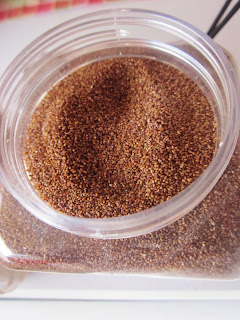After last nights bread class at Preparing Wisely, I realized it would be a good idea to start posting a lot more Grain education. It's an amazing area to expand your culinary know-how.
Are you befuddled? Many would look at this collection of grains and wonder what the heck-fire they all are and what to do with them! Well, never you worry! Chef Tess will help you get a grasp of basic grain surgery! If you missed some of my most basic recipes for grain along with many tutorials, look here . We'll be doing a lot with whole grain...a lot more than you've seen! I'm also going to be referring you to my friend Chef Brad Petersen, since I'll be working with him and his whole grain flour line a lot more (Details to follow...)
I'm starting today with just showing what the grains look like and then we'll cover how to cook with them more in depth. I hope everyone is okay with learning this step by step. I think it's a good way to go.
Let's start at the very beginning...a very good place to start. Oh have mercy. Try not to imagine me in the Sound of Music with a gaggle of kids in front of me wanting to listen to me strum my guitar. Instead...think of the smallest grains of sheer AwEsOmeNeSS...and you will have these two buddies. Auntie Amaranth and her friend Teff.
This is Amaranth. It's one of the smallest grains out there. Amaranth! Pop it and you're addicted...like crack..but healthy. See, I say popping amaranth and it sounds like a new drug huh? Well, if so...it looks like this.
Yet smaller is Teff. Teff came to us from Ethiopia where there are several thousand wild varieties. We only have two colors so far...but it's awesome stuff.
It also takes 150 grains of Teff to equal on grain of wheat...so it's smaller than heck! Heck is small...
Pearled Barley is the most common way to find barley. My favorite recipes for barley are found here: whole grain barley.
Hulled Buckwheat and Unhulled buckwheat (dark below) Buckwheat is actually not related to wheat at all and is 100% gluten free.
Brown Jasmine Rice.
Now, if you saw all these grains in a stack, could you tell by looking, what the names of the grain are?
Kamut Khorasan wheat is 1/3 longer than regular wheat and high protein. Excellent for making pasta and bread because of that protein! Plus, look how it is almost gel-like in it's appearance! noodle mix is a great place to start.
Look how long Kamut grains look next to soft white wheat!
How is that Spelt ? Many people with an allergy or intolerance to common wheat can tolerate spelt even though it is an ancient form of wheat. Why? It hasn't been genetically altered as many of our modern wheat has.
This is classic Hard Red Wheat. It's most famous here on the blog in the Sprouted Wheat bread tutorial and the sprouted wheat tortillas.
whole grain quinoa. Pronounced Keen-wah... Quinoa comes in Black, Red and White. How to Cook it!
Flax Seed
Popcorn
Rye
Black and White Chia seeds! See the scoop on this super grain :whole grain chia
Corn AKA field corn...corn nuts are a great place to start but you can also lean how to make masa in the homemade corn tortilla tutorial, masa is also amazing for tamales!
Millet is yet another amazing grain. Check out how to use it the section: whole grain millet
sorghum
For more powerful grain education, visit my friend Chef Brad! The last time we spoke, he asked me if I would be willing to try out some of his new flour line and share them with you folks here on the blog! Now isn't that nice?! Even nicer, his new TV show! is on the BYU channel. Word is he gets to do 32 more episodes...and asked me if I would be a guest chef upcoming! WOW! Now, we are both chef Petersen, but don't be confused...he's way more famous for grain. He told me he's also coming out with a package of grain samples so people will always be able to get smaller samples of the grains before purchasing them in bulk. I think he should call them "Home Grain-Surgery kits." I don't think he will though. I for one, will always be the whole grain Bread and Rolls gal...with ya know, all the other insane things I do. Thank you Chef Brad! I'm looking forward to that flour...and the show!
Get your grain surgery education finished so we can do some serious damage. Seriously!
Now, imagine what you can do when you know how to use the healthy grains and also have learned all the
Culinary Herb and Spice use and remedies from my blog here! Won't that be a powerful day?!
There you go.
































6 comments:
Looking forward to this series! I love learning about different grains and how to use them. Its so fun that we are 're-discovering' these ancient friends. Thanks Tess!
I hope you'll do companion pieces on gluten-free recipes!
Yes, we'll have a lot on gluten free, and also what to do with the grains. I've got a few really good gluten free recipes already in the "gluten free" section of the blog here: http://cheftessbakeresse.blogspot.com/search/label/gluten%20free ...enjoy.
Where did you get the containers for the grains? Love how compact and stackable they are.
I got them at our local food storage store. I've seen them at wal-mart and Target in the food storage sections as well. They are called PET containers.
Post a Comment